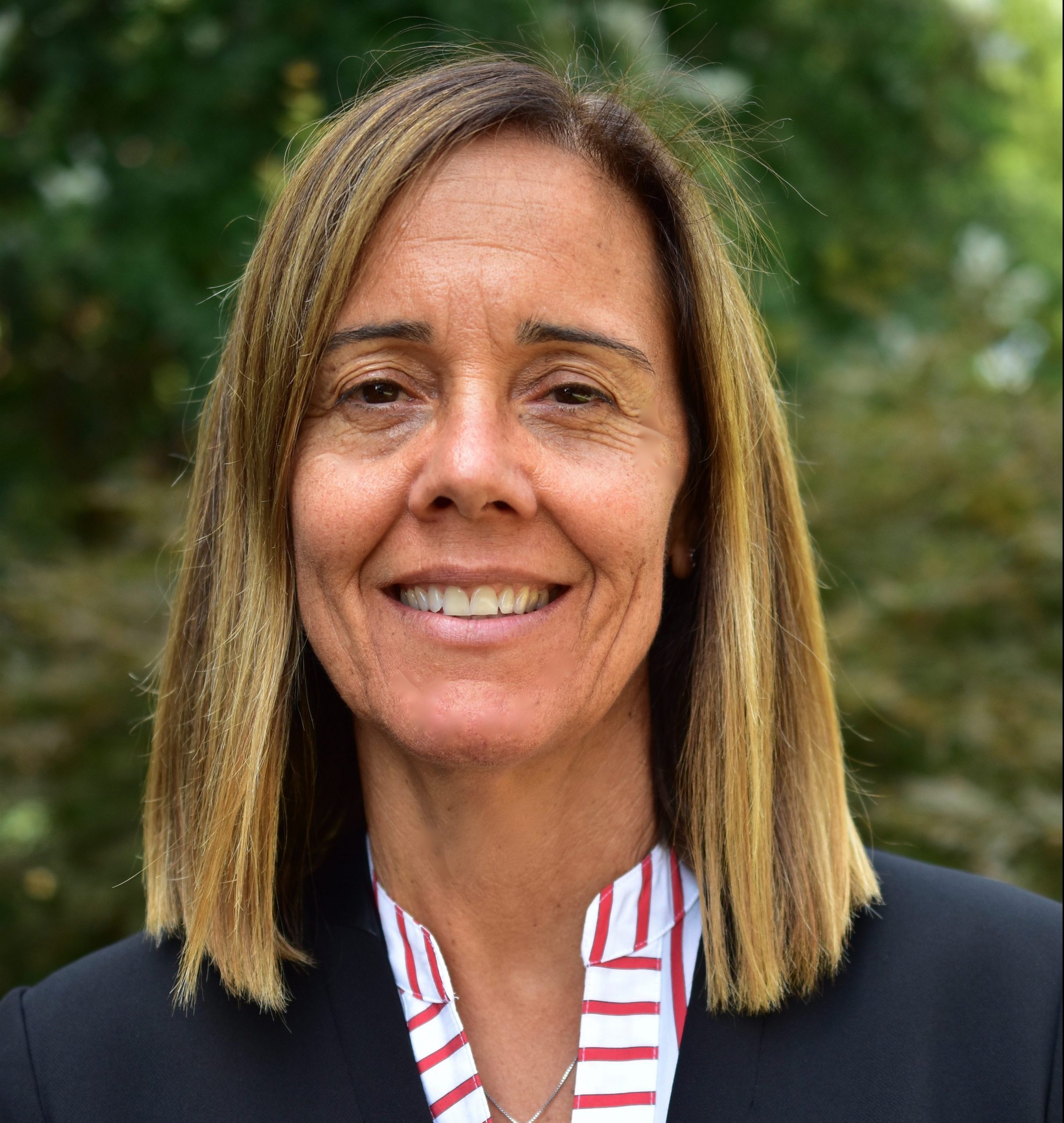Ph.D., Department Head, Associate Professor of Spanish Linguistics
Education
Ph.D., Hispanic Linguistics, Minor in Linguistics, Indiana University, Bloomington (2004)
M.A., TESOL/Applied Linguistics, Indiana University, Bloomington (1999)
B.A. English Literature and Linguistics, Universidad de Sevilla, España (1997)
Research/ Teaching Interests
- Hispanic linguistics
- Sociolinguistics
- Phonetics
- Sociophonetic production and perception
- Spanish in contact with other languages
- Bilingualism
- Second language acquisition
- Teaching languages online
Publications
Book
- García Bayonas, M. (2007). The Acquisition of Vowels in Spanish and English as Second Language. Munich: LINCOM Publishers. ISBN 9783895864988. LINCOM Studies in Language Acquisition 20.
Scholarly Articles
- Bayonas, M. (2022). Análisis comparative del aprendizaje de una Segunda lengua online y presencial (Comparative Analysis of Online vs. Face-to-Face Second Language Learning). ELIA: Estudios de Lingüística Inglesa Aplicada, 22, 199-236
-
Bayonas, M. (2020). “La enseñanza de español por internet: una aventura llena de incertidumbres.” La tradición cultural hispánica en una sociedad global. Ed. By K. Kietrys, M. Montero Curiel, C. Sotomayor, and A. Winkel. Universidad de Extremadura, 221-233.
-
Alonso Marks, E. & García-Bayonas, M. (2012). “Una Mirada a Fondo al Proceso de la Contra-urbanización: Patrones Migratorios en la Andalucía Rural”. El español, integrador de culturas. Ensayos. Serie Reflexion 15. Ed. By J. H. Valdivieso and E. Ruiz-Fornells. Orbis Press. 1-17.
-
García Bayonas, M. (2008) Perception of English Vowels as First and Second Language. RAEL, 7, 79-89.
-
Gottschall, H., & García-Bayonas, M. (2008). Student attitudes towards group work among undergraduates in Business Administration, Education and Mathematics. Educational Research Quarterly, 32 (1), 3-28.
-
García Bayonas, M. & Bayonas, H. (2008). Class Size Reduction in the Second Language Classroom. ELIA, 8, 181-203.
Book Chapters
- Bayonas, M. (2017). “Textual Enhancement and the Acquisition of the Spanish Present Subjunctive Form” In Vargas-Sierra (Ed.), Professional and Academic Discourse: An Interdisciplinary Perspective. EPiC Series in Language and Linguistics 2, 14-22.
- García-Bayonas, M. (2014). The development of Spanish oral proficiency during a 5-week study abroad program. Comunicación, Cognición, Cibernétic@ Asociación Española de Lingüística Aplicada (Spanish Association for Applied Linguistics). 399-406.
- García-Bayonas, M. (2013). Student Satisfaction with Spanish on-line vs Face-to-face Courses. Applied Linguistics in the Age of Globalization. Asociación Española de Lingüística Aplicada (Spanish Association for Applied Linguistics). 156-162.
- García Bayonas, M. (2006). Adjective Placement and Noun Semantics in Spanish. In Clements, J. C. and Yoon, J. (Eds.), Functional Approaches to Spanish Syntax: Lexical Semantics, Discourse and Transitivity (pp.219-236). New York: Palgrave Macmillan.
Teaching
Graduate Courses Taught
- SPA 589. Issues in Second Language Acquisition and Teaching
- SPA 519. Second Language Acquisition
- SPA 605. Spanish Sociolinguistics
- LLC 600. Methods of Teaching Foreign Languages
- SPA 610. History of the Spanish Language
- LLC 605. Seminar in Hispanic Linguistics
- SPA 516. Introduction to Spanish Syntax
Undergraduate Courses Taught
- SPA 101. Beginning Spanish I
- SPA 102. Beginning Spanish II
- SPA 203. Intermediate Spanish
- SPA 204. Intermediate Spanish II
- SPA 301. Advanced Spanish
- SPA 310. Advanced Spanish Language and Culture for Heritage Speakers
- SPA 311. Spanish Conversation
- SPA 313. Conversation in a Spanish-Speaking Country
- SPA 332. Culture in a Spanish-Speaking Country
- SPA 342. Introduction to Hispanic Linguistics
- SPA 411. Advanced Spanish Conversation
- SPA 415. Advanced Spanish Composition
- SPA 445. Spanish Phonetics
awards
2019 Mary Settle Sharp Alumni Teaching Award
- Dr. Mariche Bayonas received the Mary Settle Sharp Award for Teaching Excellence. This award recognizes outstanding success in motivating students to learn by making material attractive, challenging, and fun. Dr. Bayonas focuses on relevance as a tool that assists students in meeting needs. She likewise fosters the idea of an instructor as an active resource rather than the one in possession of knowledge.

